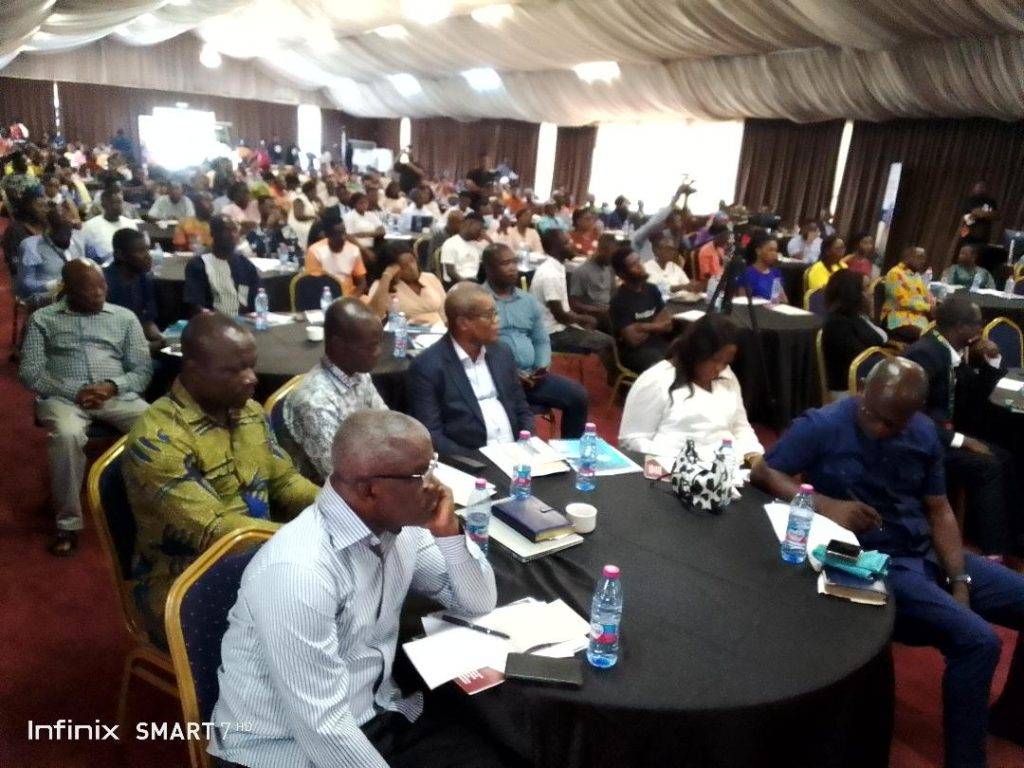![COVID-19 and its impact on business [Article]](http://ghheadlines.com/images/default.png)
The COVID-19 Pandemic
The novel strain of the Coronavirus, COVID-19, was first discovered in the Wuhan Province in China in December 2019. COVID-19 was declared a pandemic by the World Health Organization on March 11, 2020. As of today, the virus has infected over 1,800,000 individuals and resulted in over 119,000 deaths worldwide.
As can be expected, given the scale of the pandemic, business activity all over the world has come to a standstill and the economic implications have been astronomical. In a report, released by the United Nation’s trade and development agency, UNCTAD, it is estimated that the pandemic will likely cost the global economy $2 trillion in 2020.
In Ghana, the impact of COVID-19 has been particularly felt in the main economic hubs of Kumasi and Accra and a report by Deloitte Ghana, Ghana’s estimated GDP growth is set to plummet from a target of 6.8% to 2.6% in 2020.
The Lockdown
The President of Ghana, by Executive Instrument (E.I) 64 of 2020 directed that all persons and businesses, with the exemption of essential services, are to remain home or closed for a mandatory lock-down period. In terms of contract obligations, it is possible that such obligations will or have already been impacted to such as extent as they have either been suspended or completely rendered incapable of performance if time-bound.
In this article, we address the effect of the COVID-19 pandemic on contractual obligations and businesses.
Force Majeure
Force majeure refers largely to a collective group of events, either specified or generally provided for in a contractual agreement, which cannot be controlled or reasonably foreseen by the parties and results in difficulty or impossibility of performance of a contract. Force majeure only applies where there is in the contract, a clause making provision for same. The clause may either “excuse the affected party from performing the contract in whole or in part; excuse the party from delay in performance, entitle them to suspend or claim an extension of time for performance; or give that party a right to terminate.”
Can COVID-19 Be Considered as a Force Majeure Event?
Generally, events that can be considered as force majeure are those which have specifically been provided for in a contract. In other words, the force majeure clause must cover the event which occurred. Each clause will, therefore, have to be considered individually considering its phraseology in the given contract.
Some of such clauses are drafted to include specific statements such as “epidemics and diseases” (which if used expressly includes the present COVID-19 pandemic), terrorism, natural disasters such as earthquakes floods, etc. The issue however with specificity is that where the occurrence was not envisaged or provided for in the clause, the situation, no matter how damning, cannot be construed as a force majeure event.
A typical scenario is where Party A has advanced payment for the performance of a service. This scenario is common in the case of event planners (weddings, funerals, parties, seminars, etc.) who have been paid to plan and organize events which would ordinarily have occurred had it not been for the occurrence of the COVID-19 pandemic and the resulting lockdown. The event planners may also, in turn, have advanced payment to secure venues, equipment, among other things.
In such a situation, through no fault of the parties, the contracts cannot be performed, although the events may be deferred. Where there is a force majeure provision in the agreement between the parties, the parties can then fall back on the provisions of the contract and follow its terms. However, a murkier situation is where the parties, either by virtue of their contract being oral or due to a failure to include such a clause in their contractual agreement, cannot rely on the force majeure situation. The question then becomes, what options are available to the parties? This is where another contractual doctrine, the doctrine of frustration, comes into play.
The Doctrine of Frustration
A contract is said to be frustrated where an unforeseen or unexpected event occurs to make the performance of the contract impossible, illegal or radically different from the performance that was contemplated at the time the contract was made. This doctrine allows the courts to, applying just and reasonable considerations, bring the contract to an end and do justice between the parties. The principle of frustration will only come into play where there is such a change in the significance of the obligation that the obligation undertaken would, if performed, be a different thing from that contracted for.
However, a contract can only be determined to be frustrated by a court of competent jurisdiction or arbitral panel. Therefore, in accordance with the law, the parties will have to bring the action, for the court to consider all the circumstances of each contract to determine whether it has been frustrated, and give subsequent orders. Given the nature of the events however, a court proceeding may be unnecessarily long and expensive, which will not be in the interest of the parties. The parties cannot also force each other to perform their obligations under the agreements.
The best available option, therefore, will be for the parties to take cognisance of these points of law and the prevailing circumstances, and renegotiate the way forward in their best interests. The agreements they conclude should be in writing, given that there is no conclusive determination of when life as we knew it would resume.
In the meantime, parties must take steps to mitigate any losses which may arise as a result of the inability to proceed with the performance of their agreements.
Another scenario worth addressing is employment contracts, which are contracts between employers and employees, certain incidents such as control, payment of remuneration etc. are made by the employer to the employee
In view of the directives of the Government of Ghana, most employees are unable to work in the same manner as they did pre-COVID-19. Most businesses have put measures in place to ensure that work continues, albeit, remotely. However, for certain businesses that thrive on physical presence at work, working remotely might prove difficult if not impossible. The expectation, however, is that the employers will continue to pay their employees despite their inability to work. This practice is unsustainable for most businesses in the country. Accordingly, some businesses have requested their employees to proceed on compulsory annual leave.
Should the situation persist, the most foreseeable outcome will be the situation where employers lay off or terminate employment contracts. Section 62 of the Labour Act, 2003 (Act 651) provides that one of the grounds for the fair termination of employment is where the worker is prohibited from performing the work for which the worker is employed, due to a legal restriction imposed on them. It can be argued that E.I 64, which requires workers not to go to work with the necessary exemptions is a legal restriction within the meaning of Section 62 of Act 651.
Economic Implications of COVID-19 for Ghana
According to a report by Deloitte Ghana, an estimated 65% of the global economy is currently in some form of lockdown. In Ghana, the economy has been impacted in several ways including: a contraction in foreign direct investment flows into the country due to uncertainty, the agriculture value chain has been adversely affected due to disruptions in the global supply chain and a slowdown in demand as countries adjust, the hospitality industry which is a major source of foreign exchange has been adversely affected due to the closure of borders and a general slowdown in tourism (tourism is Ghana’s fourth-highest source of foreign exchange) and the demand for international travel, the mixed impact of the pandemic on the prices of goods. Additionally, there is an estimated shortfall of GHS2.254M in non-oil tax revenue.
The International Monetary Fund also on April 13, 2020 approved a $1bn loan facility to Ghana to aid in the fight of the Pandemic. The Government of Ghana has subsidized electricity prices and absorbed the cost of water bills, all in a bid to shore up the economic impact on the residents during this period.
The Registrar-General in a communication dated March 31, 2020, extended the dates for filing annual returns from April 30 to June 20, 2020, for companies limited by shares, limited by guarantee, external companies and renewal of partnerships whose financial year ended by December 31, 2019. All other companies whose financial year ended any time before June 30, 2019, are expected to file by December 31, 2020. An accurate estimate of the amount expended in the fight of the pandemic and the trickle-down effect on the economy can be made upon the resolution of the COVID-19 situation in Ghana.
Conclusion
Within the current circumstances, a distinction must be made between what is morally right, what is legally acceptable and what makes business sense, as all three may not necessarily be compatible.
Although employers may have certain liberties available to them, they must not only act in the best interest of their businesses but also in the best interest of their employees. This is because human resource fuels the smooth functioning of every business. A delicate balance must exist between what is right and what is prudent, and parties must strive to maintain this.
With respect to contractual obligations, the coming months will likely bring conflicts between parties especially in cases where agreements were not reduced into writing. Parties should resort to alternative methods of dispute resolution such as negotiation and mediation to settle any such disputes, rather than resorting to the court process, as the courts have also been affected by the COVID-19 and as a consequence, the cases may be unnecessarily lengthy and expensive.
During these renegotiations, the parties can assess the possible damage caused, extra expenses to be incurred if any, how to go about splitting costs if need be and possible contingencies for the likelihood of the restrictions imposed due to the COVID-19 pandemic.
—-
INTEGRI SOLICITORS & ADVOCATES
2nd Floor, NALAG House,
Gulf Street, South Legon
Accra
The post COVID-19 and its impact on business [Article] appeared first on Citinewsroom - Comprehensive News in Ghana, Current Affairs, Business News , Headlines, Ghana Sports, Entertainment, Politics, Articles, Opinions, Viral Content.
Read Full Story














Facebook
Twitter
Pinterest
Instagram
Google+
YouTube
LinkedIn
RSS